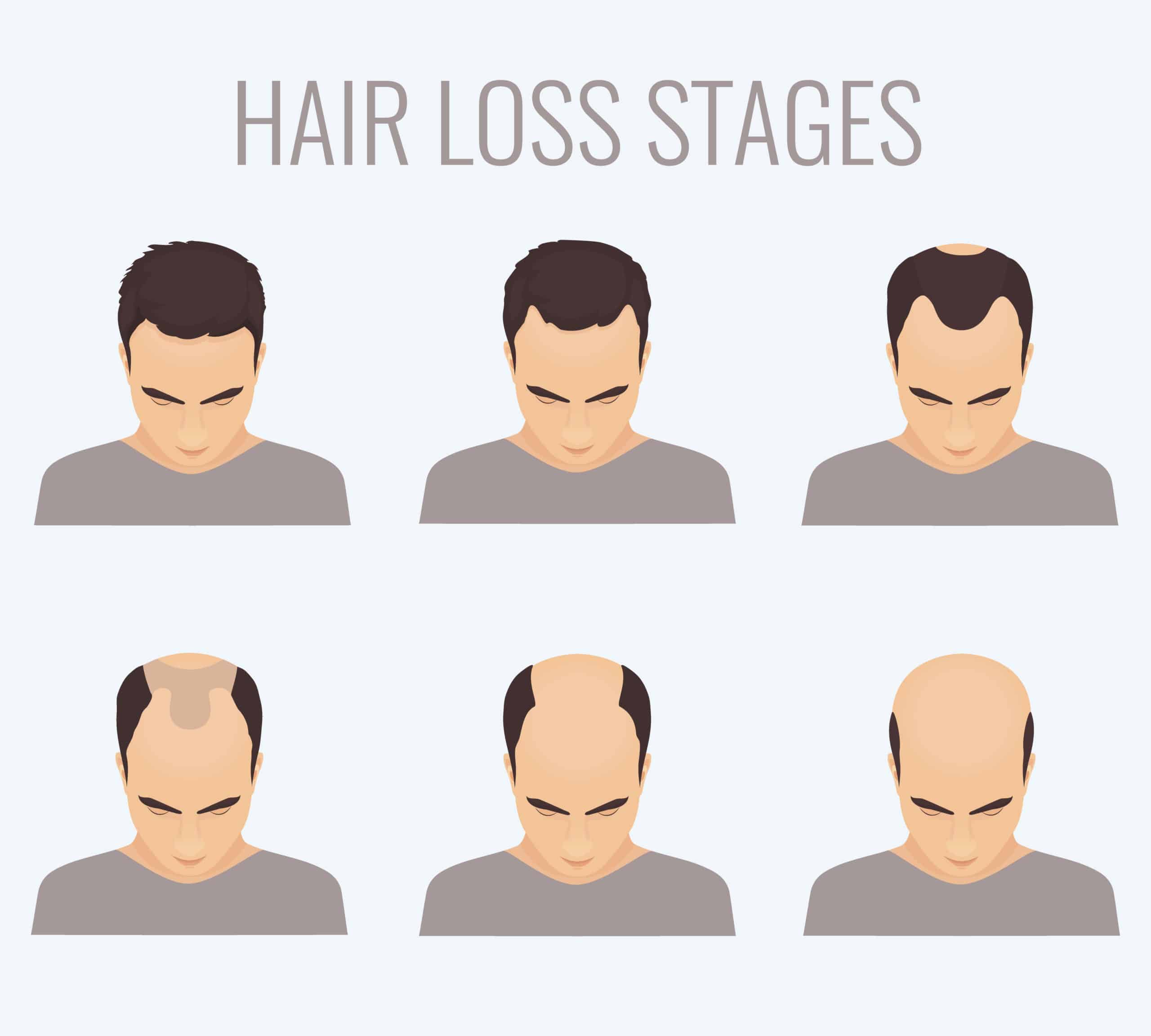My Insight Hub
Your go-to source for daily insights and updates.
Hair Today, Gone Tomorrow: The Unexpected Truth About Hair Loss
Discover the shocking reasons behind hair loss and unlock surprising solutions to regrow your locks! Click to reveal the truth now!
Understanding the Science Behind Hair Loss: Causes and Solutions
Understanding the science behind hair loss begins with recognizing the various factors that can contribute to this common condition. Hair loss can occur due to a range of causes, including genetic predisposition, hormonal imbalances, and environmental influences. For instance, androgenetic alopecia, often referred to as male or female pattern baldness, is primarily driven by genetic factors and hormones such as dihydrotestosterone (DHT). Additionally, external factors such as stress, nutritional deficiencies, and certain medical conditions like thyroid disorders can exacerbate hair thinning. Understanding these causes is crucial for effective management.
Once the causes are identified, exploring solutions for hair loss becomes essential. There are various treatment options available, including topical treatments like minoxidil, oral medications such as finasteride, and even advanced procedures like hair transplant surgery. Lifestyle changes, including a balanced diet rich in vitamins and minerals, can also play a significant role in promoting hair health. Furthermore, it's important to consult with a healthcare professional to determine the most appropriate treatment tailored to an individual's specific condition and needs. By combining knowledge of the scientific principles with practical solutions, one can effectively address hair loss and foster healthier hair growth.

Top Myths About Hair Loss Debunked: What You Need to Know
Hair loss is a common concern for many, yet it is often surrounded by myths that can lead to unnecessary anxiety and misinformed decisions. One prevalent myth is that wearing hats causes baldness. In reality, hats do not affect the hair follicles and thus have no direct impact on hair loss. Another myth suggests that frequent shampooing leads to hair thinning, but in fact, proper hygiene is essential for a healthy scalp. It's crucial to separate fact from fiction to maintain a healthy perspective on hair loss.
Another common misconception is that women only experience hair loss after menopause. While hormonal changes can contribute to hair thinning, women of all ages can be affected by hair loss due to various factors, including genetics, stress, and nutritional deficiencies. Additionally, many believe that hair loss treatments are only effective for men; however, there are numerous options available for women as well. Understanding these myths is vital, as it empowers individuals to seek appropriate solutions and fosters a proactive approach to managing hair health.
Is Stress the Silent Killer of Your Hair: Exploring the Connection
Is Stress the Silent Killer of Your Hair? The intricate connection between stress and hair health is often overlooked. Stress activates the body’s fight-or-flight response, releasing hormones such as cortisol that can have detrimental effects on various bodily systems, including hair growth. When faced with prolonged periods of stress, hair follicles can enter a state of telogen effluvium, leading to increased hair shedding. Research suggests that individuals experiencing high levels of stress may notice significant thinning or loss of their hair, raising concerns about the long-term impact of stress on one’s appearance and self-esteem.
Furthermore, understanding the mechanisms that link stress and hair health is crucial. Chronic stress can disrupt the normal hair growth cycle, pushing many hair follicles into a resting phase, and ultimately causing them to fall out. Additionally, stress can exacerbate existing scalp conditions, such as dandruff or psoriasis, compounding the issue of hair loss. To mitigate the effects of stress, adopting relaxation techniques like meditation, yoga, or regular exercise can be beneficial. Taking proactive steps to manage stress may not only help maintain your mental well-being but can also be essential for keeping your hair healthy and vibrant.